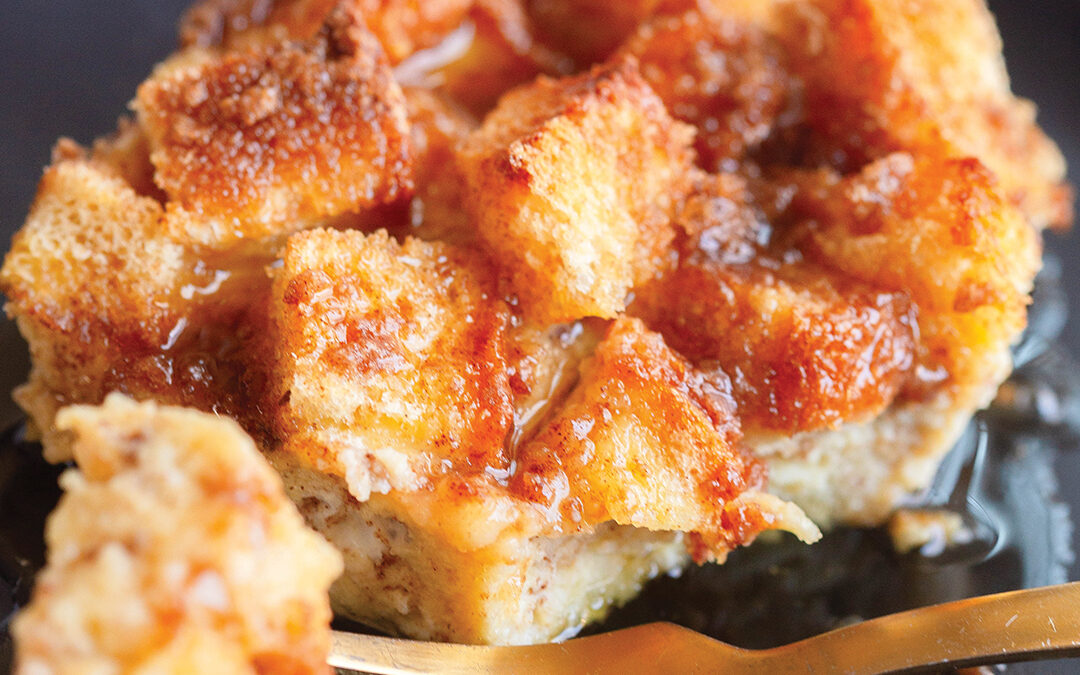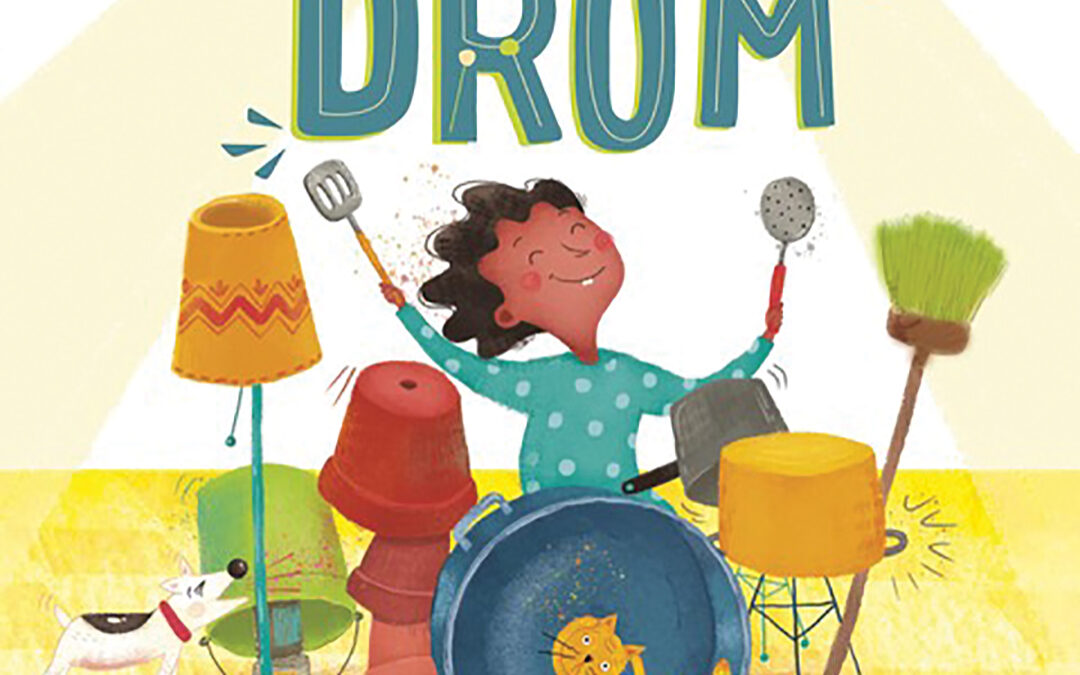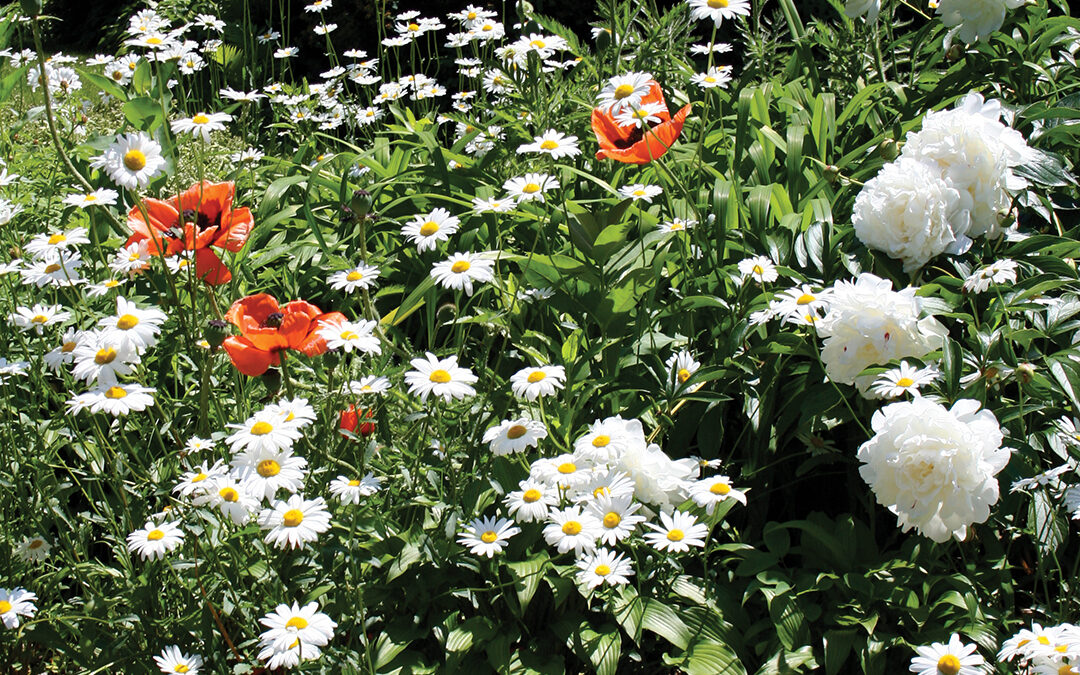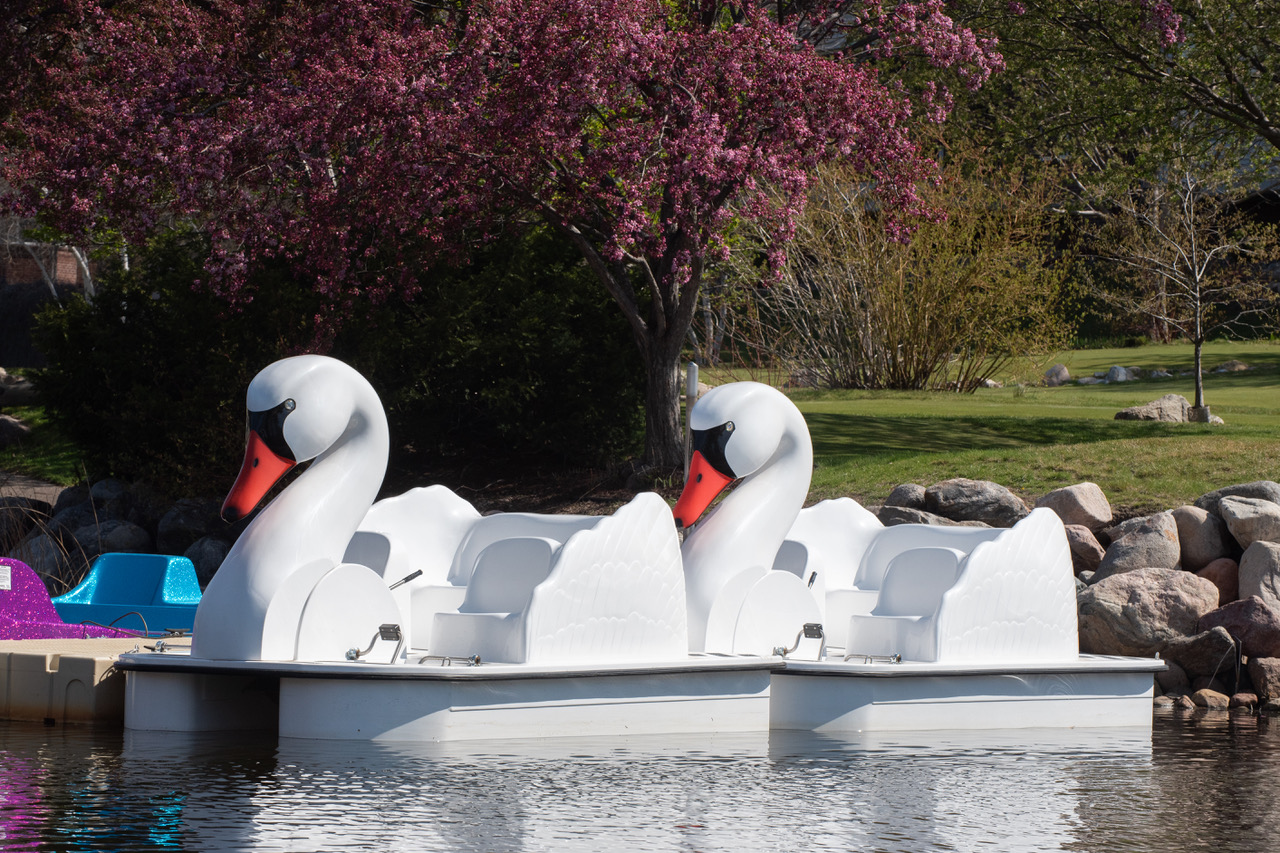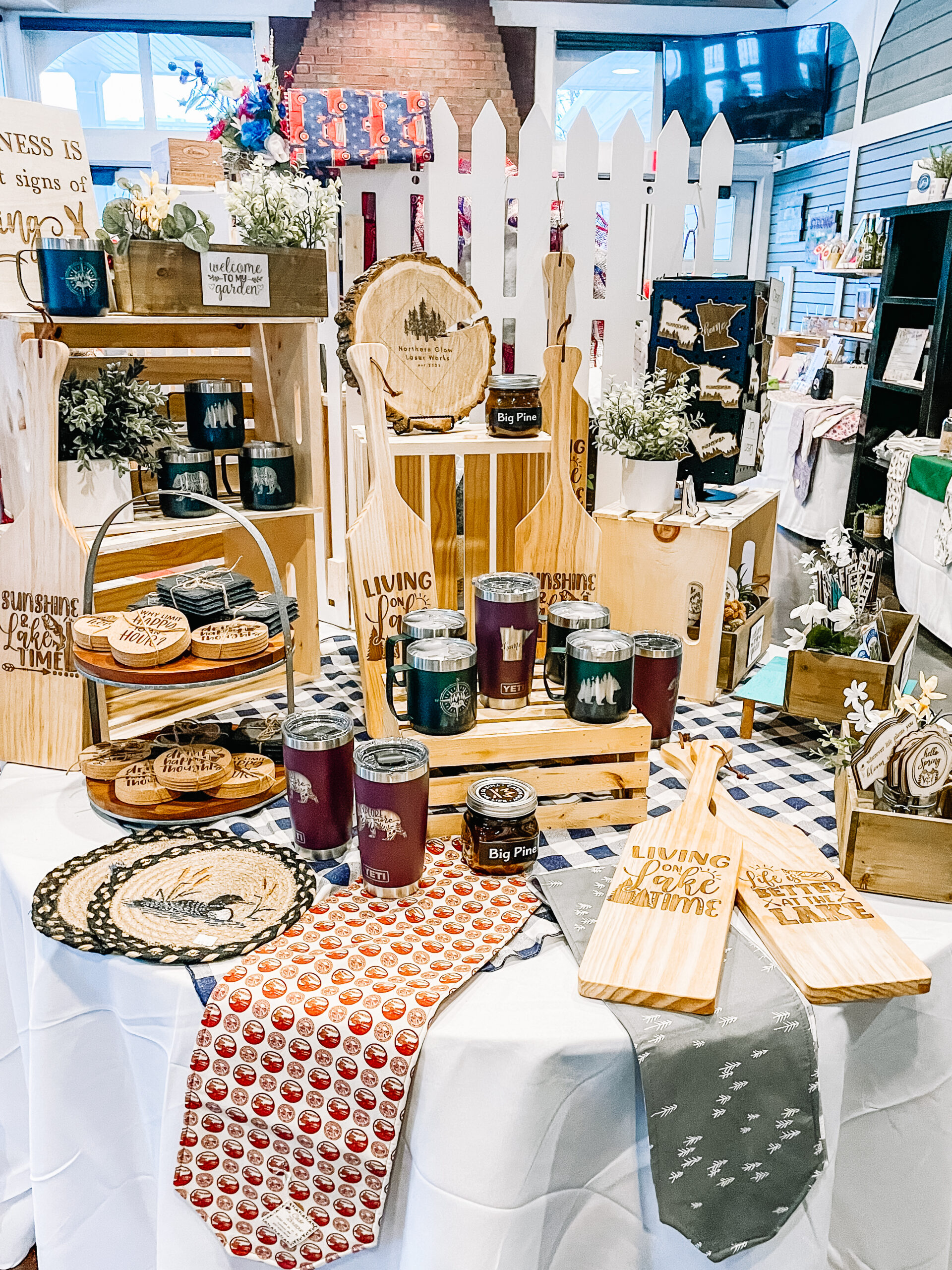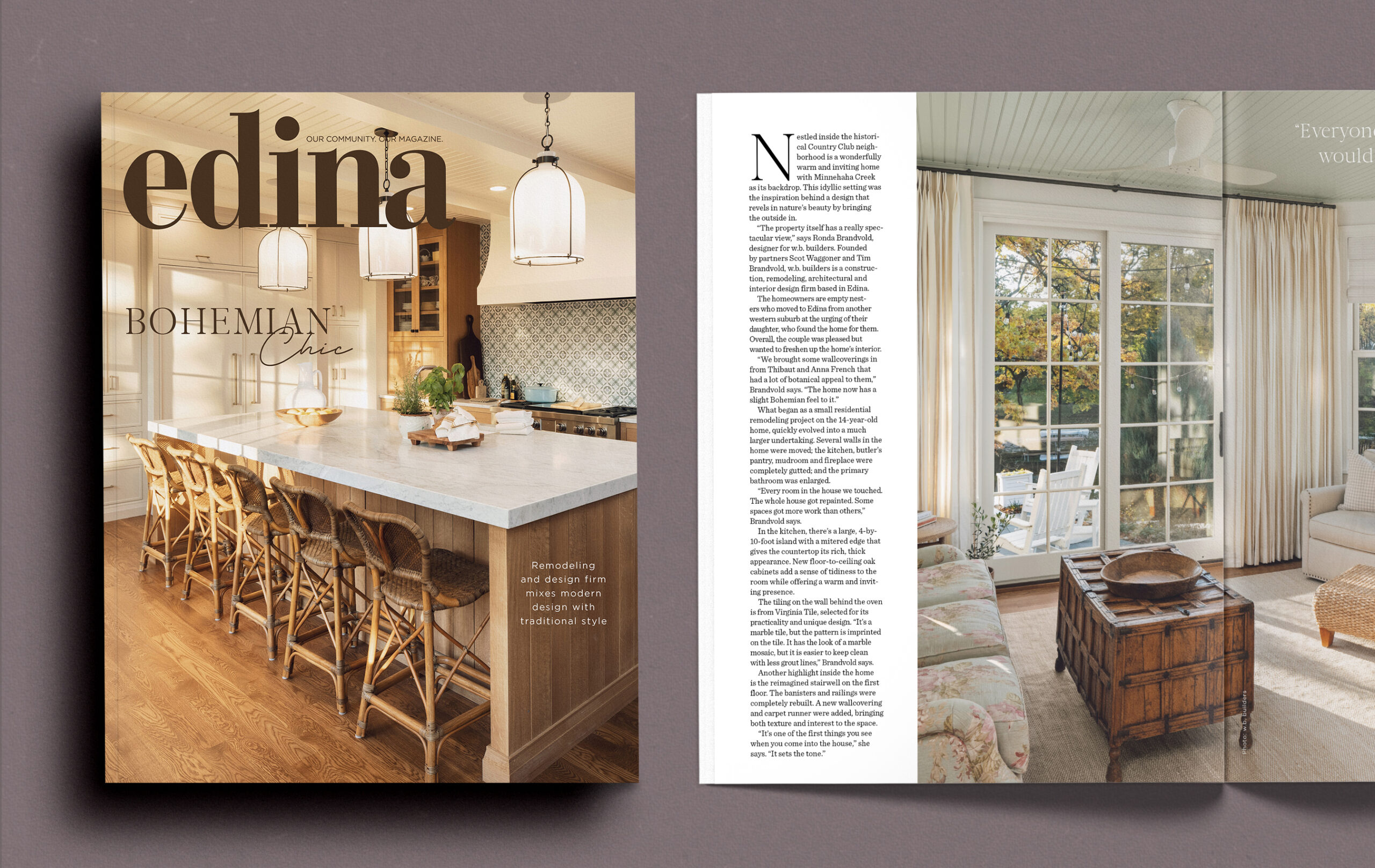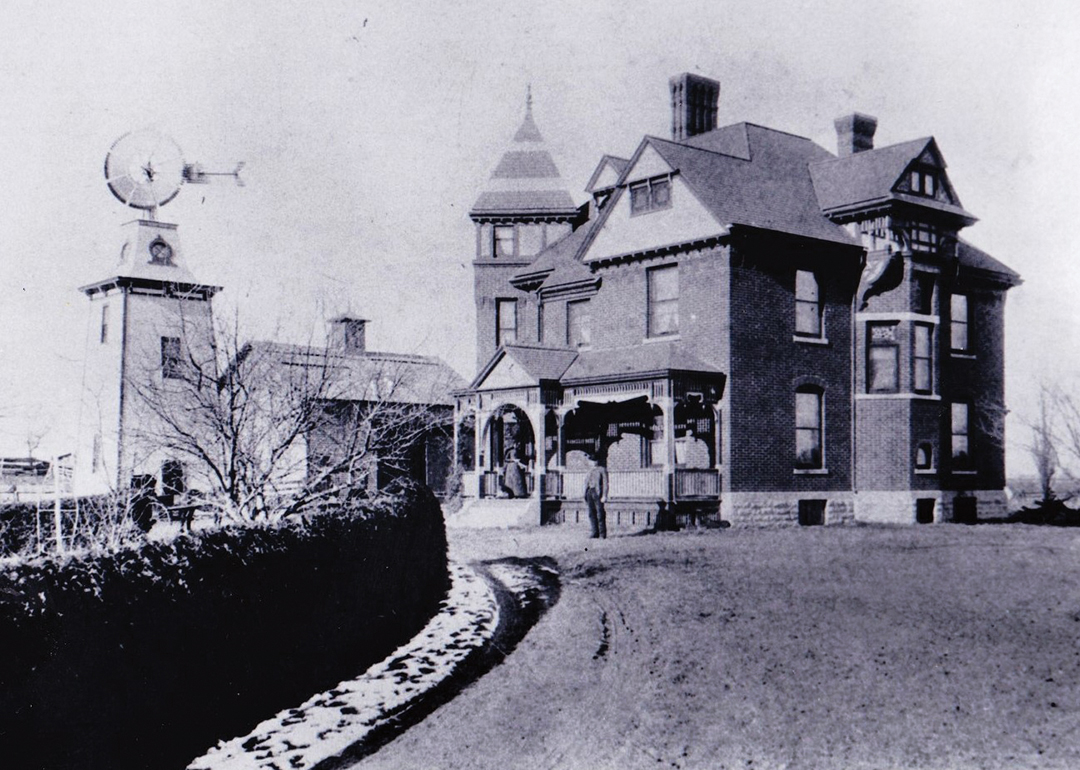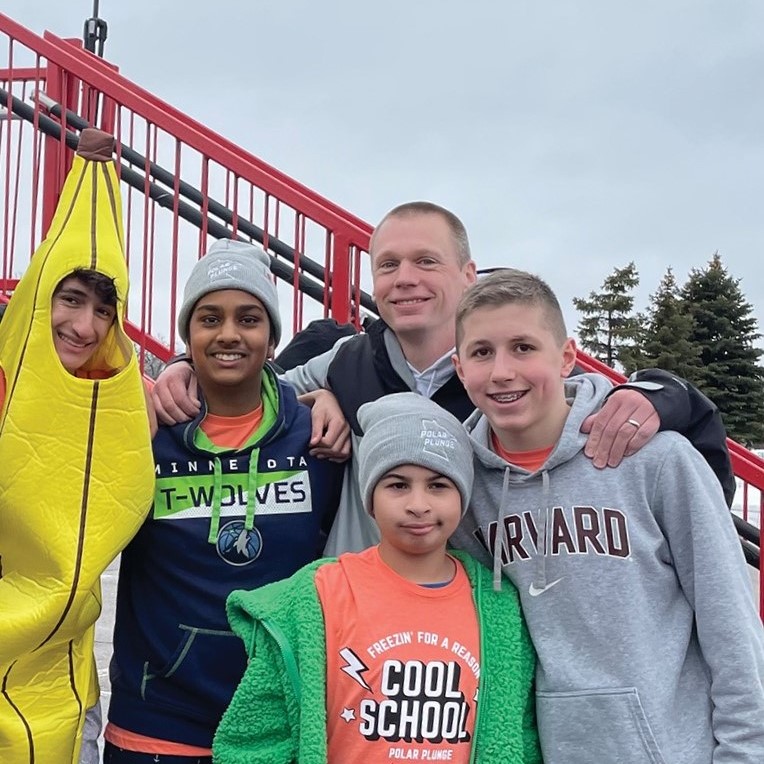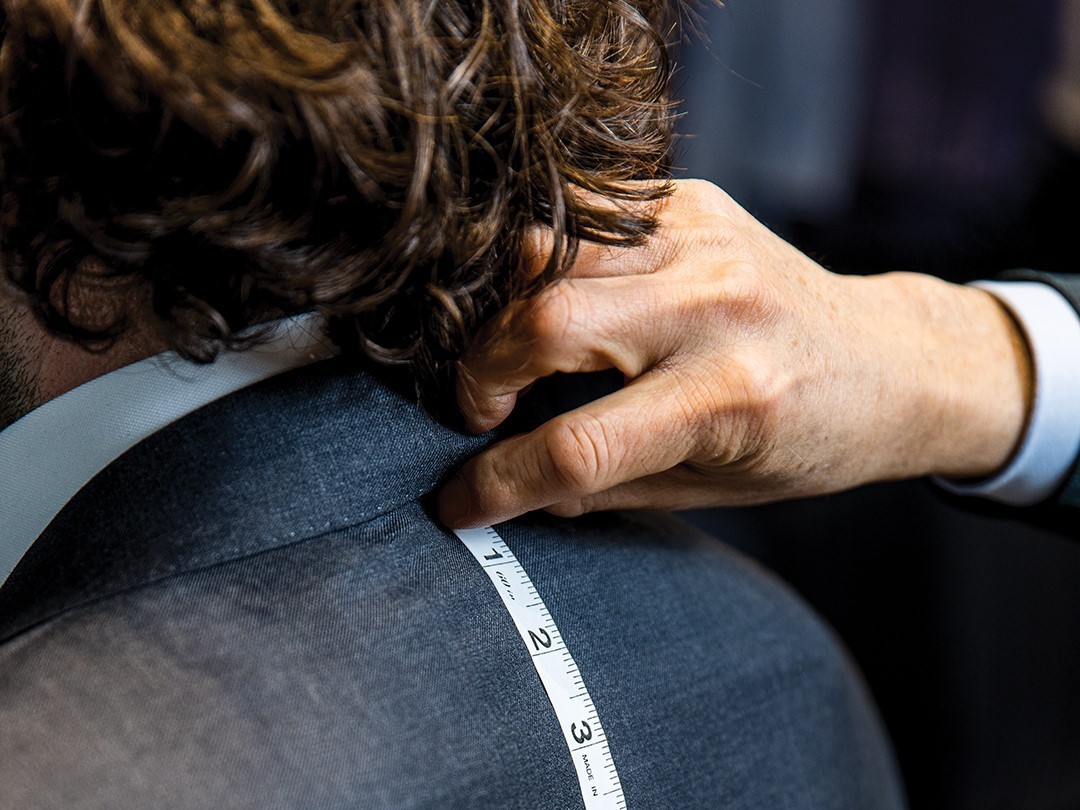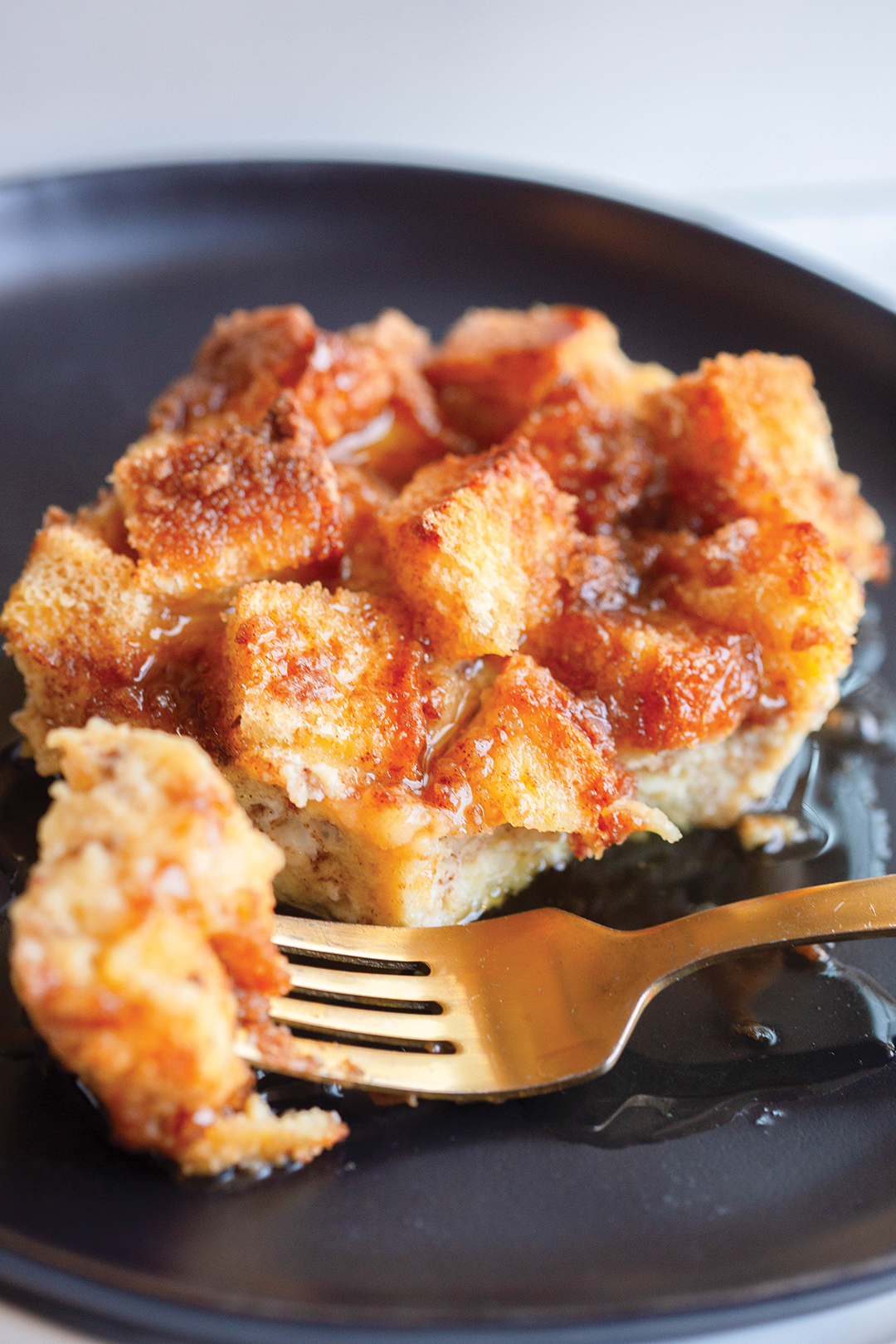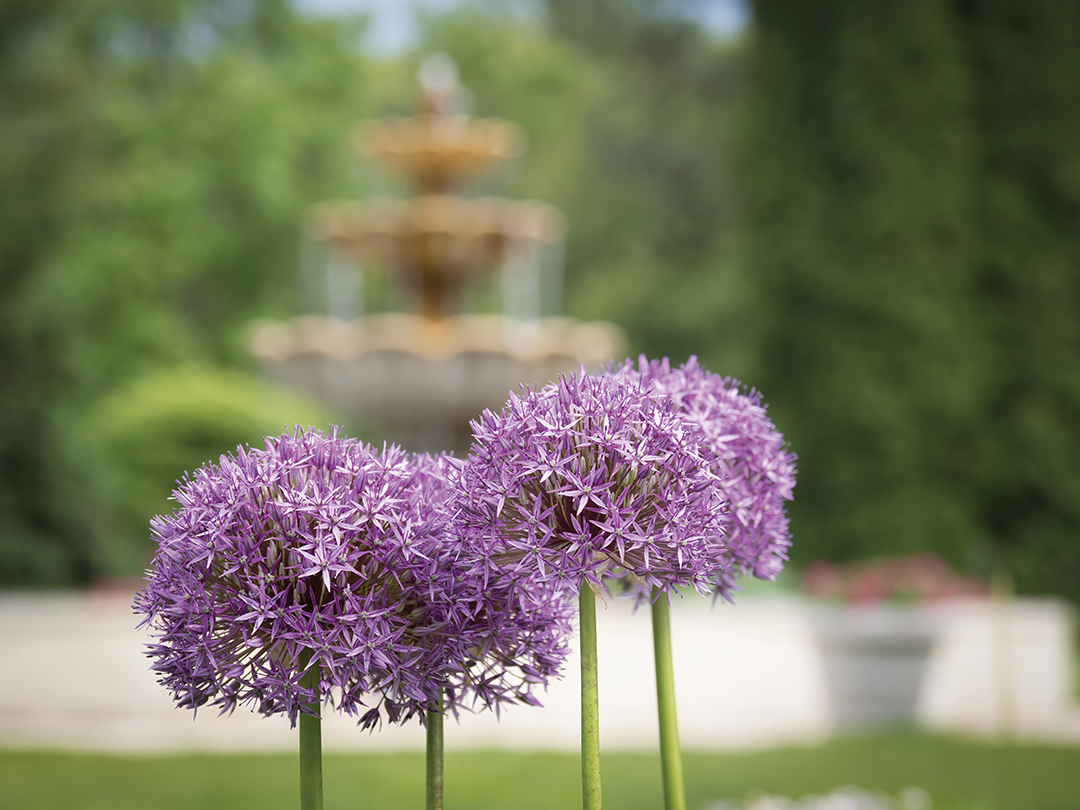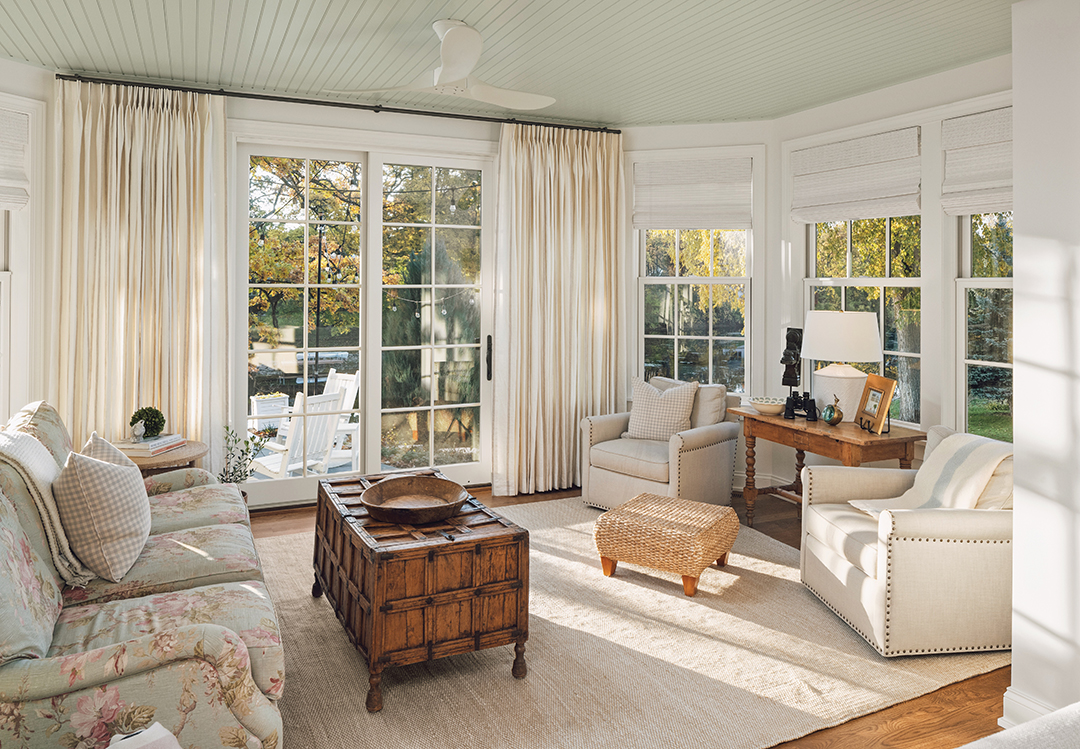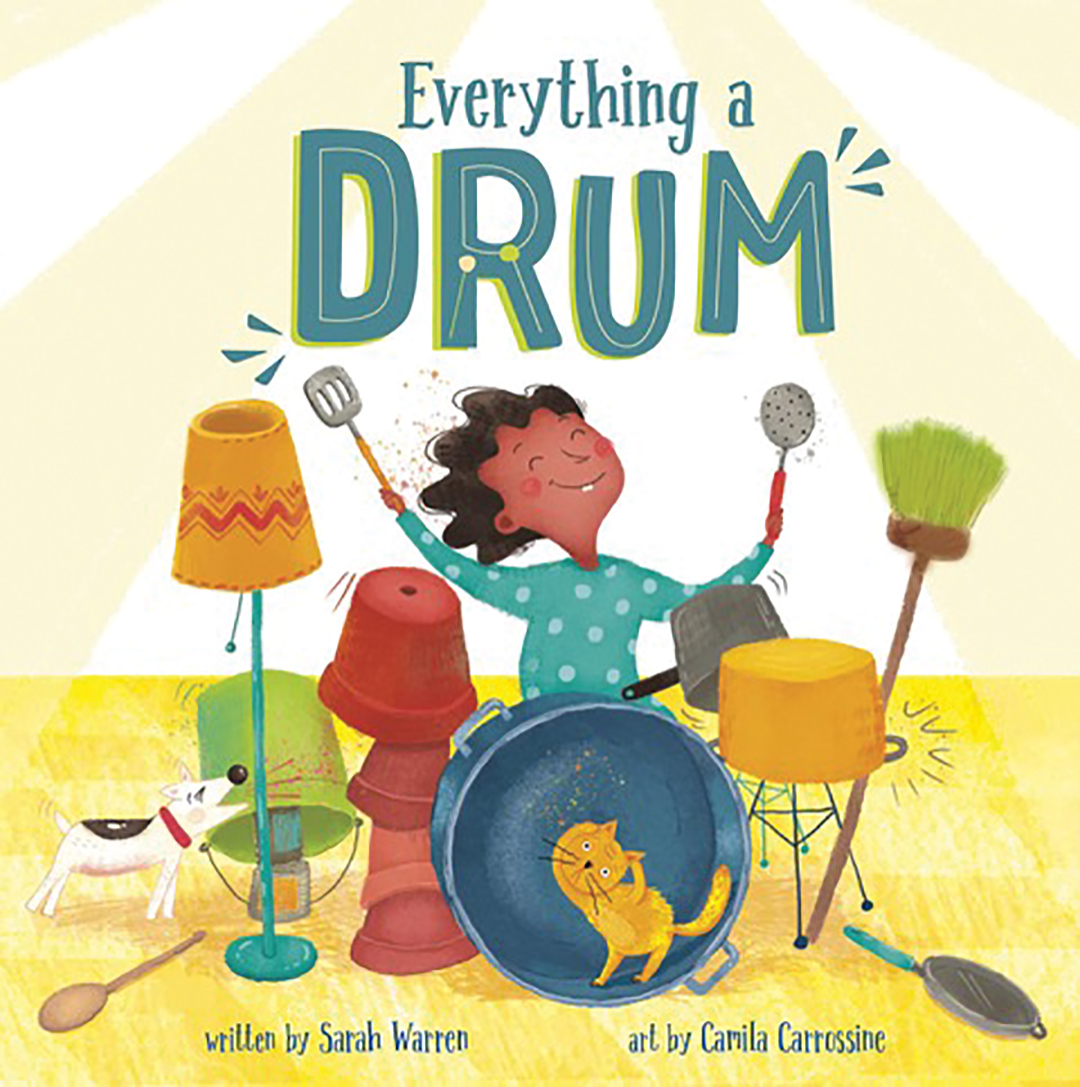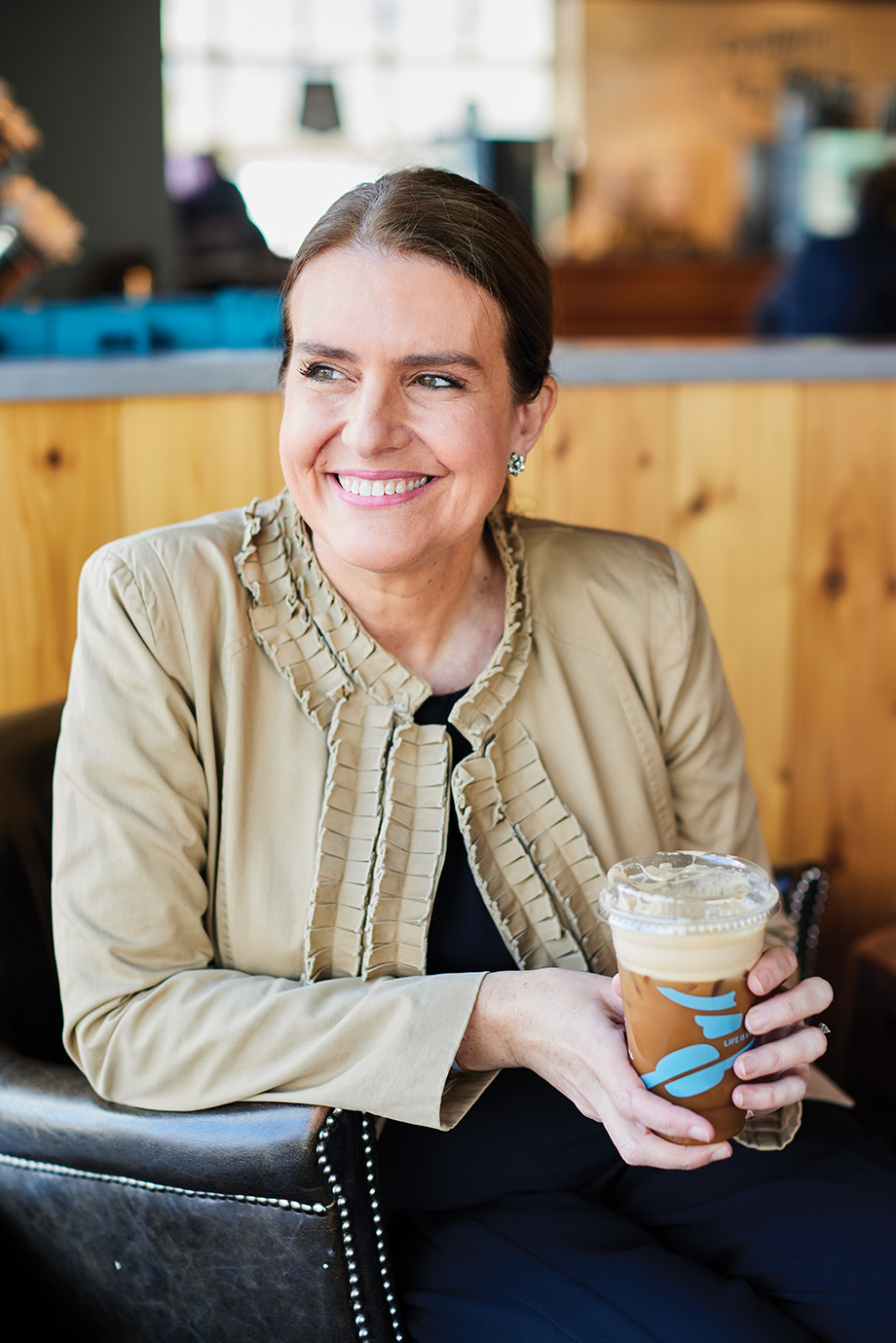
Photos: Chris Emeott
For Caribou Coffee, being eco-friendly isn’t a marketing gimmick—it’s an everyday commitment.
When Caribou Coffee poured its first cup of java in 1992—in Edina at 44th Street and France Avenue—sustainability was not on the menu. Thirty years later, the world has evolved and so has Caribou.
“[Sustainability is] a journey, not a destination,” says Erin Newkirk, Edina resident and chief brand and marketing officer for the company. But it’s a journey that the company has very intentionally embarked on—from environmental and sourcing certifications to clean label commitments and in-store waste management solutions.
“When I think about sustainability, I think about impact—how we can positively impact the environment, our customers and suppliers, and the communities we operate in,” says Anne Beattie, who, in 2022, was hired as ESG engagement and sustainability manager, a new role for the company. (ESG stands for environmental-social-governance framework.) In this role, Beattie creates frameworks around which the company can measure progress year-over-year in the realms of the environment, social initiatives and climate impact.
“There are so many opportunities when it comes to sustainability efforts, but we are being very thoughtful about embedding ESG into our management framework, so that we can make decisions and put our efforts toward things that are meaningful and valuable to our brand and stakeholders,” Beattie says.
Rainforest Alliance–Certified
Newkirk says that so much of what happens in the realm of sustainability is behind the scenes. Take, for example, the decision to become 100 percent Rainforest Alliance–certified in 2012—the first major coffeehouse company in the United States to do so. An international nonprofit, the Rainforest Alliance (RA) is dedicated to supporting sustainable farming and business practices, preservation of rainforests, human rights and meeting the challenges of a changing climate. According to the RA, its seal on a product means “the certified product or ingredient was produced using methods that support the three pillars of sustainability: social, economic and environmental.”
Kayleen Alexson, director of brand experience at Caribou Coffee, emphasizes that the RA focuses not only on quality in the products its certifies but also on people, nature and climate. “Every bean on shelves and in stores is [grown] with climate best practices,” she says.
Coffee farmers who are a part of the RA receive education and support in conservation of the land and creative solutions to help combat deforestation. From a human rights lens, the RA helps combat child and forced labor, wage inequality and indigenous land rights.
Newkirk says being 100 percent RA certified also means “transparency and traceability of our beans. Issues at origin impact each community. Our investment helps build schools and homes and source replenishment; everywhere we harvest, we seed new coffee plants.”
Caribou sources beans from many countries, including Costa Rica, Guatemala, Brazil, Columbia, Indonesia, Kenya and Ethiopia.
Clean Label Commitments and Beyond
But Caribou’s sustainability practices go beyond the actual coffee. In 2018, Caribou became the first U.S. coffeehouse to offer 100 percent clean beverages—meaning the drinks contain no artificial colors, preservatives or ingredients of any kind. None of its dairy products used in drinks contain added hormones. Only real vanilla, caramel, pumpkin and chocolate are used in all of Caribou’s handcrafted beverages. And its decaf coffee? It’s water processed, rather than chemically processed. “Our decaf is better for the environment, and it tastes better,” Newkirk says.
And it’s not just the drinks themselves that have become sustainable—it’s also the vessels from which you drink them. In-store composting and recycling are widely available at Caribou locations—compostable cups for hot drinks and recyclable hot and cold lids are standard in many stores. As of 2022, Caribou offers strawless lids on cold drinks. And since the lifespan of a to-go cup is mere minutes, Caribou offers 10 cents off every beverage if you bring your own tumbler or mug to the store.
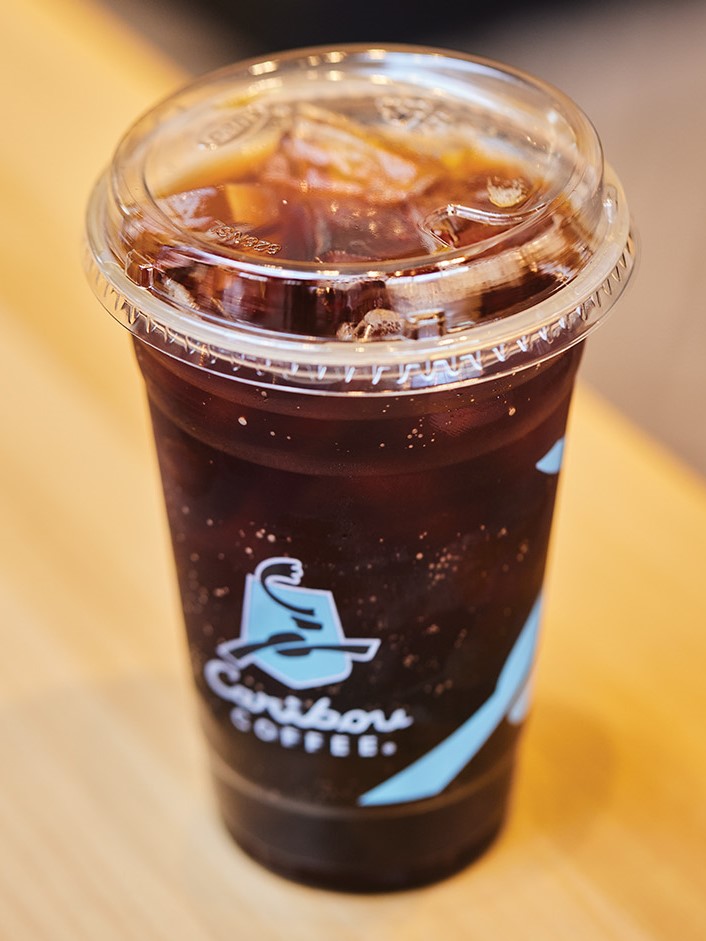
Caribou introduced strawless lids for it’s cold cups in 2022.
Locally, around Earth Day every year, Caribou teams up with Bachman’s. In the coffee industry, large burlap bags are used to ship green coffee beans from farms to roasting facilities. Caribou partners with Bachman’s each year to donate and reuse bags for community tree-planting and gardening projects, as well as on its 670-acre growing range in Farmington.
What’s Next?
Beattie has been on the job for less than a year, but she’s already undertaking big initiatives, particularly in the realm of greenhouse gas emissions and climate change. “Since this was a new role, there was so much opportunity to help build and grow an ESG strategy on an already solid foundation,” she says. “One of the biggest efforts that Caribou Coffee is currently undertaking is around our impact on the climate. We have completed our first Greenhouse Gas Emissions Inventory, giving us our total Corporate Carbon Footprint—a look at specifics about our emissions across the company and through the value chain,” she says. “From there, we plan to set a Science Based Target to reduce our emissions to net zero. It will be a journey for us as a company, but it will have a significant impact, and we are really proud to be joining many other companies making efforts to address climate change.”
Alexson notes that the heart of ESG and Caribou’s take on sustainability is about people and the planet. “It’s making sure that we’re being transparent and holding ourselves accountable from a people and planet perspective—hence trying to level-up our commitments to be more holistic across our organization and not just focus on environmental sustainability issues that can be kind of hot topics. [We’re] making sure that we are [also] prioritizing the wants, needs, hopes and dreams of our guests, and also what we call our global communities, knowing that we have [worldwide] locations, but we also have partners at origin across the globe.”
Beattie agrees, noting that how Caribou thinks about sustainability comes back to the company’s self-stated purpose of “creating day-making experiences that spark a chain reaction of good.”
It’s that same mission that drew Newkirk to leave the world of startups and join this well-established company in 2020. “Caribou Coffee is a purpose-driven company with vibrant core values. The best part of my job as chief brand and marketing officer is that I get to decide how our purpose … shows up in our business daily,” she says. “What makes me happy is doing good things with good people—and there’s a lot of good at Caribou.”
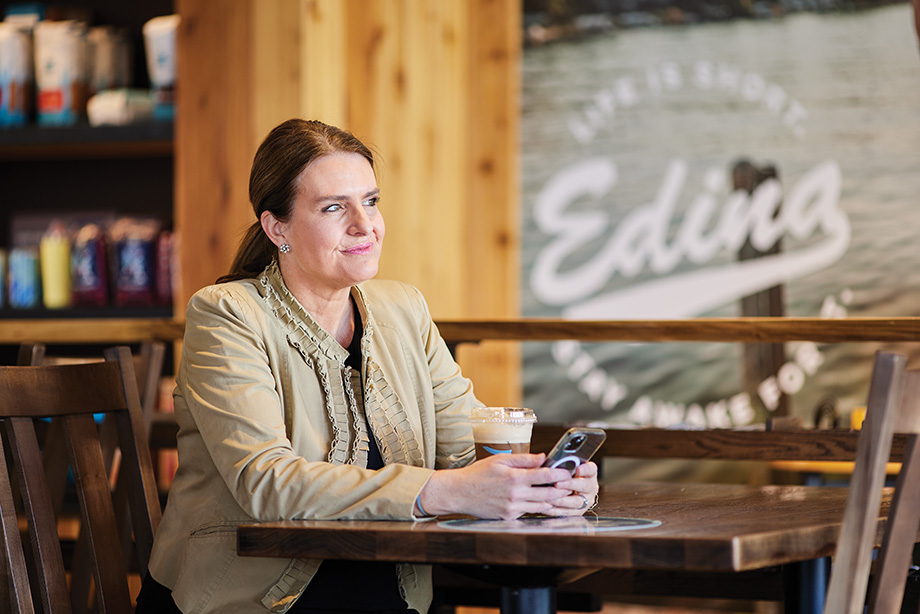
Today, Caribou has 339 company-owned and 144 non-traditional locations nationwide, as well as 288 franchise stores in 11 countries, totaling more than 750 coffeehouses worldwide. Seven of those locations are sprinkled throughout Edina, including the flagship location. Caribou is privately owned by JAB Holding Company, under the Panera Brands holding company umbrella, alongside Panera Bread and Einstein Bros. Bagels. Caribou’s headquarters and roasting facility are located in Brooklyn Center.
Caribou Coffee
4408 France Ave. S.; 952.926.7086
Facebook: Caribou Coffee
Instagram: @cariboucoffee

